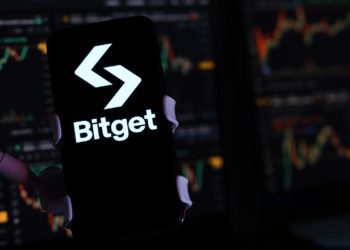Dmail co-founder says email must be decentralized and protect data sovereignty
The crypto market is hot, and prices have been in “up only” mode since the start of the year, but looking at the developments beyond Bitcoin and memecoins, the industry’s focus on decentralization remains intact, and for good reason.
Just this week, multiple news outlets reported on a lawsuit against Meta claiming the tech giant allegedly gave Netflix access to Facebook users’ direct messages in exchange for Netflix agreeing to spend up to $150 million in ads in 2017.
A separate incident, brought to light on March 30, involves United States telecom giant ATT automatically resetting millions of customer account passwords after acknowledging a data seller published 73 million ATT customer records from a data breach that occurred in 2019.
As usual, the list of data breaches and instances of misuse of customer and user data goes on and on. Just do a quick Google search to see for yourself.
On episode 33 of The Agenda podcast, hosts Ray Salmond and Jonathan DeYoung sit down with Dmail co-founder Daniel James to discuss why everyone needs everything to be decentralized, including email.
Decentralize it!
Spam, phishing emails, and the risk of having one’s personal data either deleted or sold are common concerns shared among email users, and James says that “blockchain really enhances security” as “there’s no central point of failure that hackers can target.”
James added that Dmail prioritizes privacy by encrypting every email, which makes it “harder for attackers to compromise email accounts and intercept communications.” The decentralized nature of the service also gives users data sovereignty.
“It’s a battle world. It’s a more moral world where you are not the product. You are actually gaining something from this platform. And that’s really what attracts most people into Web3 initially, is that you do have data sovereignty. For me, the foray into Web3 was mostly about Big Tech essentially becoming the arbiters of truth and really overstepping the mark, getting political and censoring certain things. To me, that’s not the job for Big Tech, regardless of your political affiliation. That should not be happening.”
James explained that “email solves these kinds of problems, but it also brings something completely different to the table. It brings the Web3, the blockchain layer, and the possibilities are endless.”
When asked how Dmail or any decentralized platform could supplant Gmail’s dominance, James suggested that the ultimate objective is not to replace Gmail but rather to “replicate” their “fantastic user experience and user interface” while circumventing the “ethical concerns.”
Related: Google’s inclusion of Bitcoin wallet balances sparks privacy debate
James said:
“I think it’s a beautiful product, the way that it’s built. And if we can replicate the UI [user interface] and UX [user experience], that’s great. But there are ethical concerns. There is the fact that you can be bombarded with unsolicited emails. Your data is not your own. Your storage is not fully decentralized. The revenue streams are essentially the only trickle-down within the company itself. So, that’s a very good example of centralization. And so I think that with Gmail, the value proposition is altogether different. You own your own data, you own your own drive, everything is your own as well as the data autonomy.”
To hear more — including James’ crypto origin story and future plans for Dmail — listen to the full episode on Cointelegraph’s podcasts page , Apple Podcasts or Spotify . And don’t forget to check out Cointelegraph’s full lineup of other shows!
Magazine: Creating ‘good’ AGI that won’t kill us all: Crypto’s Artificial Superintelligence Alliance
This article is for general information purposes and is not intended to be and should not be taken as legal or investment advice. The views, thoughts, and opinions expressed here are the author’s alone and do not necessarily reflect or represent the views and opinions of Cointelegraph.
Disclaimer: The content of this article solely reflects the author's opinion and does not represent the platform in any capacity. This article is not intended to serve as a reference for making investment decisions.
You may also like
CARV opens the second season airdrop collection, the snapshot time is April 17th 20:00
Auradine Secures $153M in Series C Funding to Expand Blockchain and AI Infrastructure
Auradine, a prominent blockchain and AI infrastructure solutions provider, has successfully raised $153 million in a Series C funding round.

KiloEx has recovered all stolen funds and will issue a 10% bounty to white hat hackers
Analysis: About 170,000 Bitcoins are being transferred
